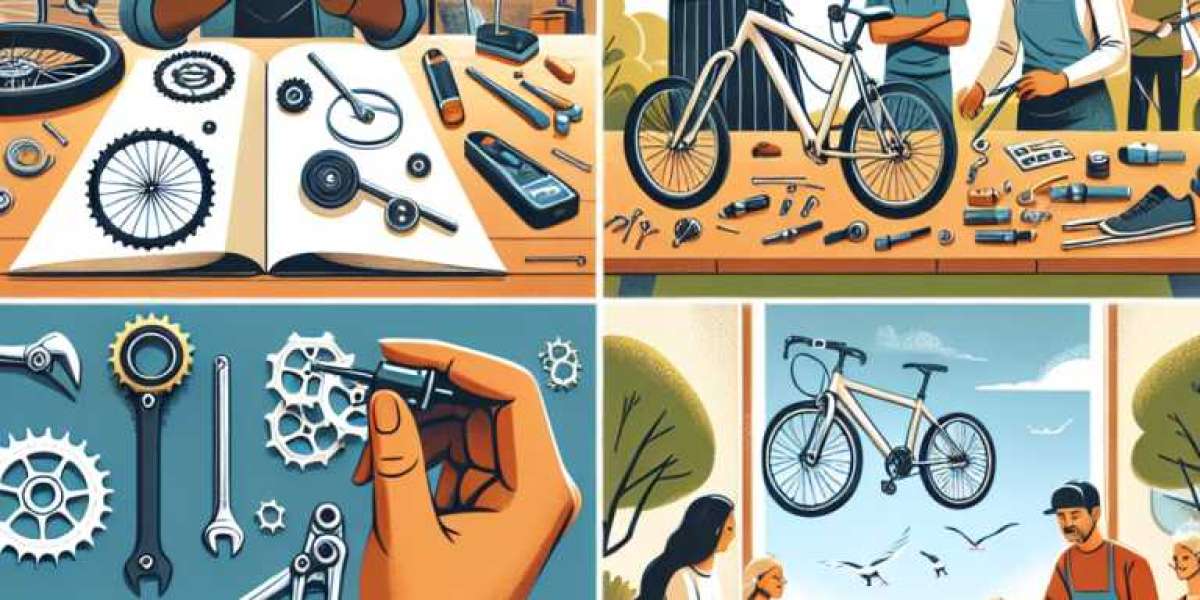For decades, the Indian automotive aftermarket has been a tale of two extremes: the expensive, opaque, but trusted authorized dealership, and the affordable, convenient, but highly unorganized local garage. As of late 2025, this entire landscape is being radically and rapidly redefined by Digital Aftermarket Services. This is a broad ecosystem of technology platforms that are bringing transparency, convenience, and trust to the entire service and repair process. From booking a service on an app to ordering genuine parts online and even having a mechanic come to your home, these digital services are the single biggest trend shaping the industry, empowering both car owners and independent workshops.
The Pillars of the Digital Aftermarket Ecosystem
This new digital ecosystem is not one single thing, but a collection of interconnected services that are solving the aftermarket's biggest problems:
E-Commerce for Parts (The "What"): Sourcing Parts and Accessories
This is the foundational layer. It's the digitization of the parts supply chain.
B2C: Online platforms empower individual consumers with transparent pricing and access to genuine parts, fueling the "Do-It-For-Me" (DIFM) culture where owners buy parts online and take them to their mechanic. This solves the trust and authenticity problem.
B2B: Dedicated platforms are revolutionizing procurement for independent garages, allowing them to order genuine parts with GST billing and rapid delivery, eliminating the inefficiencies of the old offline market. In a city like Pune, this means a garage in Kothrud can get a part delivered in hours without sending a person to the Nana Peth market.
Service Marketplaces (The "Who" and "Where"): Booking Services
These are platforms that connect car owners with a network of independent workshops.
Value for Customers: They act as a branded, trusted middleman. A customer can book a service (like a "standard 40,000 km service") through an app for a fixed, transparent price. The platform often handles pick-up and drop-off, ensures a standardized service procedure is followed at the partner garage, provides a warranty on the service, and manages the entire customer relationship.
Value for Garages: This model is a lifeline for small workshops. It provides them with a powerful marketing channel to acquire new customers, digital tools to manage bookings, and crucial support with parts procurement and training, helping them professionalize and compete with authorized centers.
Digital Garage Management (The "How"): SaaS for Workshops
The unorganized sector of local garages is now being digitized from within.
Cloud-based SaaS (Software as a Service): Modern garage management software is replacing the paper ledger. It allows workshops to manage appointments, create digital job cards, send automated service reminders to customers via SMS/WhatsApp, manage their spare parts inventory, and handle digital payments and billing. It professionalizes the workshop from the inside out.
"At-Your-Doorstep" Services (The Ultimate Convenience):
This is a major, fast-growing digital service. These are companies that dispatch a fully-equipped mechanic and van to a customer's home or office.
The Focus: They specialize in high-frequency, high-convenience services like routine maintenance (oil changes, filter replacements), battery services, car spa/cleaning, and minor repairs that don't require a heavy-duty hydraulic lift. This trend completely eliminates the need for the customer to travel or give up their car for a whole day.
Telematics and Remote Diagnostics (The "When"):
This is the most advanced pillar, connecting the car itself to the digital aftermarket.
OBD2 Dongles Telematics: Aftermarket devices plug into the car's diagnostic port and transmit real-time vehicle health data (fault codes, sensor readings) to a smartphone app or cloud server.
Predictive Maintenance: The app's platform can interpret a fault code, tell the owner what a "Check Engine" light means in plain English, and in advanced systems, use AI to predict a failure before it happens (e.g., "Your battery voltage is consistently low, it is likely to fail in the next 3 weeks"). This system can then seamlessly link to the service marketplace to book a repair.
The Impact: A More Transparent Future These Digital Aftermarket Services are converging to create a new ecosystem built on trust. They are solving the aftermarket's "lemon problem"—the fear of being overcharged, sold fake parts, or receiving poor-quality service. By making pricing standardized, parts genuine, and reviews public, this digital transformation is empowering the Indian car owner like never before and forcing the entire industry, from the smallest garage to the largest dealer, to become more efficient and customer-centric.
Frequently Asked Questions (FAQ)
Q1: What are "digital aftermarket services"?A1: The term refers to the entire range of tech-based platforms and services that are digitizing the car service and repair industry. This includes e-commerce websites for parts (B2C/B2B), apps for booking services at local garages (service aggregators), software for managing the garage itself (SaaS), and at-your-doorstep mobile mechanic services.
Q2: What is a "service aggregator"?A2: A service aggregator is an online platform or company that brings together a large network of independent, unorganized garages under a single brand. It provides customers with standardized services, transparent pricing, and online booking, while providing the garages with a steady stream of business and operational support.
Q3: How does telematics (OBD2 dongles) fit into the aftermarket?A3: Telematics allows the vehicle to communicate its health data in real-time. This is a key enabler for the digital aftermarket, allowing for remote diagnostics (reading fault codes) and, more advanced, predictive maintenance, where AI can predict a part failure before it happens and proactively schedule a service.
Q4: How is this digital trend affecting local mechanics in India?A4: It's a major transformation. It's helping them become more efficient by providing B2B platforms to easily source genuine parts. It's giving them access to more customers through service aggregator platforms.
More Related Report
India Automotive Door Seals Market Share
Automotive Collapsible Steering Column Market Share






